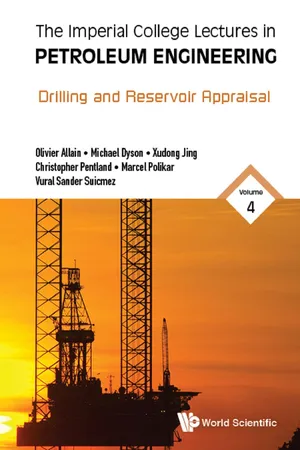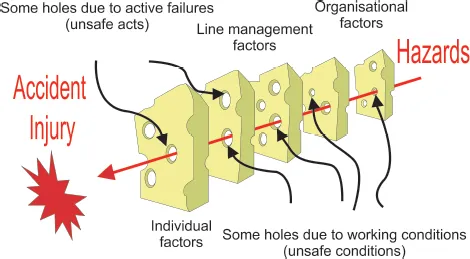![]()
Chapter 1
Well Engineering
Michael Dyson
Director, Striatum Limited, UK
This chapter of the Handbook of Petroleum Engineering should enable the reader to:
•articulate the basic principles of well planning, design and construction;
•understand how well design and construction contributes to optimal field development;
•recognise the basic drilling and completion stages and equipment used;
•possess a basic understanding of alternative completion designs;
•appreciate well operations safety, costs and operations management.
1.1.Introduction
1.1.1.Objectives
Wells play a key role in every phase of the field development from exploration, through appraisal, development, the production phase and field abandonment. In a typical deepwater offshore project, well costs can account for 50% of total project Capital Costs (CAPEX). The quality of information acquired from an exploration or appraisal well can determine the efficacy of a multi-billion dollar investment. Avoiding formation damage during the drilling process can make a substantial difference to the well’s production. Placing the well optimally in the reservoir strongly affects field drainage and ultimate recovery. And planning for future requirements and overall well integrity maximises its business contribution over the full lifecycle of the field.
Proper management of drilling operations is essential, given that operating costs may exceed $1 million per day for a deepwater rig. The need for diligent supervision and operations has been exemplified by blowouts of wells such as that on BP’s Macondo field in the US Gulf of Mexico.
All these aspects point to the value of applying project management concepts to well delivery. This implies early involvement in field development concepts and application of a Well Delivery Process as described later in this chapter.
The exploration and production business generally, and drilling in particular, is rife with terminology, abbreviations, three-letter acronyms (and imperial units). When first used, specific terms are noted in bold. A glossary is provided at the end of this chapter.
1.2.Health, Safety and Environment (HSE)
Well engineering operations such as drilling, completing and testing wells are potentially very hazardous activities. A penetration is being made into deep, naturally pressured formations often containing flammable liquids and gases that may also be poisonous. If these flow uncontrolled to surface and catch fire, the result can be catastrophic — with likely human fatalities and injuries, severe environmental damage, loss of equipment and impact on the reputation of the companies and organisations involved.
Furthermore, all drilling activities involve using and moving heavy equipment around on the wellsite, with the potential to injure those working there. High-powered machinery, caustic chemicals and explosives are frequently used in drilling operations.
Rig operations have tended to be a highly cyclical business, with “booms and busts” resulting in activities starting and stopping at short notice. Historically, this in turn has resulted in unskilled labour being recruited at the wellsite, particularly for land operations, with a high injury rate being the almost inevitable outcome. There are old jokes — not far from the truth — that “real” drillers have a few fingers missing from past injuries.
The industry has addressed and continues to address these challenges, for example, by hiring and rigorous training of drilling crew, and making increasing use of automated systems on the rigfloor. Government regulators and agencies have demanded improvements in safety, healthy working conditions and considerably reduced environmental impact from well engineering activities. As a result, the Exploration & Production (E&P) business, and rig operations in particular, is very HSE-conscious and enjoys occupational injury rates lower than most other industries.
In line with the philosophy that HSE permeates all aspects of well operations, this chapter will identify and discuss specific HSE considerations as they arise. In the meantime, a few key concepts need to be covered here.
1.2.1.Accidents are not Accidental
All accidents are incidents that arise from a series of failures. These are sometimes shown in the “Swiss Cheese model” after James Reason — the concept being that the barriers erected to prevent an accident tend to have holes in them and that an accident will happen if all the holes in all the barriers line-up (see Figure 1.1). This model is used in many industries including the airline business and medical practice. The barriers may be physical (such as a hardhat), avoiding unsafe acts, following rules and procedures, possessing competence and effective supervision.
Figure 1.1. Swiss Cheese safety model.
The industry focuses on “plugging the holes” in the barriers, testing them to make sure they are reliable and reporting any shortfalls.
Additional measures are also taken to mitigate the results of an incident (as opposed to avoiding the incident in the first place). These include emergency response capability, fire-fighting equipment and first-aid training.
1.2.2.Safety is Built-In
It can be appreciated that many of the barriers to accidents and incidents result from:
•proper planning of operations, automating and removing people away from high risk tasks if possible;
•providing appropriate equipment including PPE (personal protection such as hard-hats, boots, eyewear, coveralls and gloves);...

